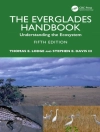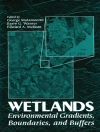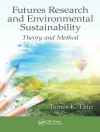This book offers a detailed analysis of the intersection of sustainability, innovation, and global progress, and it comprehensively explores sustainable practices and their impact on business, education, and technology. The book shows how businesses can incorporate sustainability into their core operations, including environment-friendly supply chains, renewable energy adoption, circular economy models, ethical decision-making, and sustainable growth strategies. Successful sustainable businesses and the benefits of their socially responsible practices are highlighted. In addition, the book explores how education can shape a sustainable future. It is necessary to integrate the ideas of sustainability into the curricula of early childhood education to higher learning institutions to educate and empower the next generation of changemakers. The role of technology in advancing sustainability efforts is also investigated, including artificial intelligence, blockchain, clean energy solutions, green architecture, and smart cities. Other topics explored in the book include global sustainability efforts such as international collaborations, public-private partnerships, and multilateral initiatives; the role of governments, NGOs, and international organizations in promoting sustainable development; ethical considerations and social impacts of sustainable practices, for example, social justice, inclusivity, and environmental stewardship; connections between sustainable development and improved quality of life; and groundbreaking ideas and innovations for industries to tackle sustainability issues. The book offers a comprehensive and forward-looking perspective on sustainability. By combining different viewpoints, the book empowers readers with the knowledge and inspiration to contribute meaningfully to a more sustainable, inclusive, and resilient world.
İçerik tablosu
– A review of balanced scorecard application in public hospital setting.- Critical Success Factors in Implementing Sustainable Business Models: The ITAL case.- Earnings Conference Calls’ Tone in Just Meet-Beat Firms: Evidence from the UK.- Economic Sustainability through IPSAS: A Global Perspective.- ESG Reporting: Impacts, Benefits and Challenges.- Green Marketing Strategies: Research Agenda for Sustainable Consumer Behavior and Corporate Responsibility.- Size as a Motive for Bank Window Dressing: Evidence from an Emerging Economy.- Strengths and Weaknesses of Integrated Reporting: A Comprehensive Literature Review.- The impact of Jordanian tourism website performance on online purchase intention: Review.- Sustainability in Education.- Outstanding Support for Students Becoming a Social Entrepreneurship Course.- Environmental orientation and sustainable innovation performance: The role of dynamic capabilities.- Mapping the Landscape of Sustainable Finance: A Scopus Based Bibliometric Analysis.- Shedding Light on the Link: Salient Stakeholder Theory and Sustainability Connections.- Accounting in the Digital Era: Does Big Data add value?.- Driving Sustainability Forward: Do Fintech and Digital Transformation Matter?.- Factors affecting big data analytics in Jordanian commercial banks.- Investigating Firm-Generated Content’s Influence on Digital Marketing Effectiveness in Private Hospitals – A Jordanian Perspective.- Sustainability Practices within Fin-Tech Firms: A Literature Review.- The Impact of Information and Communications Technology (ICTs) on Food Security in Jordan.- The moderating role of accountant’s capability on the relationship AIS and the quality of financial reporting: A literature review.
Yazar hakkında
Dr. Hashem Alshurafat is an assistant professor in accounting and the associate dean at Hashemite University, Jordan. He earned his Ph.D. in accounting from the University of Southern Queensland, Australia. He is an editor and a reviewer of many scholarly journals and a keynote speaker at many international conferences. He is a guest editor of special issue on forensic accounting in the Journal of Financial Reporting and Accounting. His research currently focuses on forensic accounting, technology adoption in accounting, and accounting education.
Prof. Allam Hamdan is a full professor and the dean of College of Business and Finance at Ahlia University, Bahrain. He is listed in the world’s top 2% scientists list by Stanford University. He has published many articles in national and international journals focusing on accounting and financial and economic issues in the Arab world. He also has research interests in education-related issues in Arabic universities such as educational governance, investment in education, and economic growth. He has received many awards, including the First Prize of Al-Owais Creative Award in 2017 and 2019 and the Second Prize of Rashid bin Humaid Award for Culture and Science in 2016, among others. He was recognized with the highest scientific research citations among the Arab countries according to Arcif 2018-2022. He is a member of steering committee in the International Arab Conference of Quality Assurance of Higher Education.
Professor John Sands is a professor at the University of Southern Queensland, Australia. He has been either a team leader or a member of 16 research grant projects. He has held various positions, including the head of accounting discipline; the director of undergraduate programs; the chair of Accounting and Finance Association of Australia and New Zealand (AFAANZ) Management Accounting Special Interest Group; a steering committee member of the Environmental and Sustainability Management Accounting Network (EMAN)—Asia Pacific; a Tertiary Education Quality and Standards Agency (TEQSA) expert; a State Personal Lines product manager; and State Finance Administration manager.












